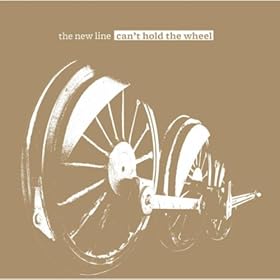|
The New Line, Can't Hold the Wheel (independent, 2013) The New Line is a side project for the usually solo Vermont-based musician Brendan Taaffe. Can't Hold the Wheel consists of American folk songs -- the title quotes a recurring refrain in "Train on the Island" -- along with a song each by Bob Dylan (the obscure "Nobody 'Cept You") and John Prine ("Speed of the Sound of Loneliness"). The ambience is mostly acoustic and quietly conversational. Nothing particularly novel there.
Yet the most notable instrument is Taaffe's mbira, a Zimbabwean thumb piano. Taaffe plays it expertly, in other words not like a bumbling amateur who's showing off for the rubes. He learned it the right way: in Zimbabwe from the native masters. I have no idea what a mbira looks like, but as you hear it, the noun "xylophone" will well up in your brain, I suspect. Band member Adam Hurt plays gourd banjo -- the banjo in its initial, African iteration -- when he's not working the standard flat-bottomed five-string. Mike Olson's trumpet shows up periodically as if floating in from an Afro-pop session. The immediate effect on the listener will likely be a conflicted one, manifesting in a certain confusion about how one should respond. At first I could only deduce that this was meant to be no more than pleasant novelty. It's more than that, though. This is real music, and it does to you what real music does. While the songs will be familiar to those who know the American Folksong Book, they're the sorts that never grow stale. Taaffe's personable tenor, which makes no attempt to emulate the original vocalists (Lead Belly, Dock Boggs, Clarence Ashley or whomever), speaks plainly and pleasurably to the ear while simultaneously exploring the songs' deeper meanings. As I listened to Taaffe, I was surprised to notice that "Train on the Island" concerns a romantic break-up, and I'd heard it dozens of times in more "authentic" arrangements. The ubiquitous hobo ballad "Danville Girl" feels freshly conceived in New Line's version. And Taaffe may have been born to sing the lilting "Her Bright Smile Haunts Me Still" and the funereal "The Old Churchyard." If an irritating mental voice insists that this shouldn't work, ignore it. Taaffe has assembled the right musicians and thought the whole thing through, and the consequences are as happy as one could desire. 
|
 Rambles.NET music review by Jerome Clark 13 December 2014 Agree? Disagree? Send us your opinions!  



 |

